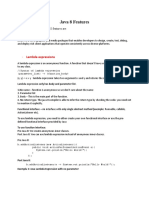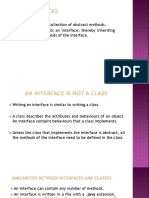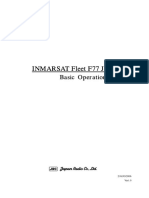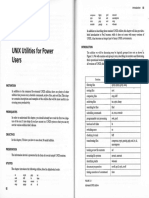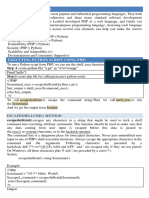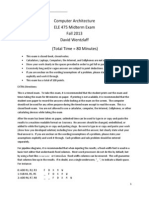0% found this document useful (0 votes)
21 views3 pagesOOPS Lab 6
The document outlines a Java program that implements various features including a functional interface, lambda expressions, method references, default and static methods in interfaces, and inner classes. It demonstrates the use of a lambda expression to check if a string is empty and showcases method references for static and instance methods. Additionally, it includes an example of an inner class accessing an outer class field.
Uploaded by
Abhishek KumarCopyright
© © All Rights Reserved
We take content rights seriously. If you suspect this is your content, claim it here.
Available Formats
Download as DOCX, PDF, TXT or read online on Scribd
0% found this document useful (0 votes)
21 views3 pagesOOPS Lab 6
The document outlines a Java program that implements various features including a functional interface, lambda expressions, method references, default and static methods in interfaces, and inner classes. It demonstrates the use of a lambda expression to check if a string is empty and showcases method references for static and instance methods. Additionally, it includes an example of an inner class accessing an outer class field.
Uploaded by
Abhishek KumarCopyright
© © All Rights Reserved
We take content rights seriously. If you suspect this is your content, claim it here.
Available Formats
Download as DOCX, PDF, TXT or read online on Scribd
/ 3

